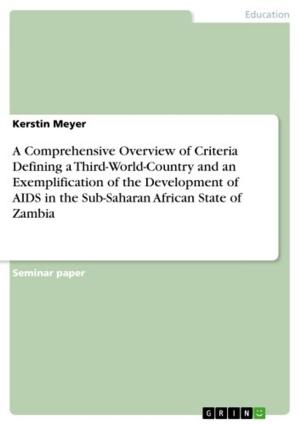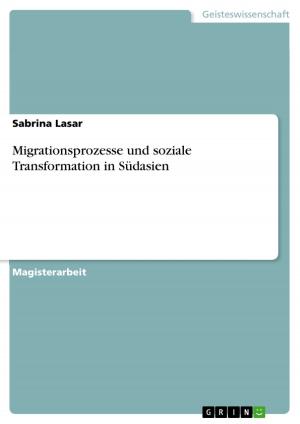| Author: | Kathrin Vogler | ISBN: | 9783640803460 |
| Publisher: | GRIN Publishing | Publication: | January 18, 2011 |
| Imprint: | GRIN Publishing | Language: | English |
| Author: | Kathrin Vogler |
| ISBN: | 9783640803460 |
| Publisher: | GRIN Publishing |
| Publication: | January 18, 2011 |
| Imprint: | GRIN Publishing |
| Language: | English |
Seminar paper from the year 2010 in the subject English Language and Literature Studies - Linguistics, grade: 3,0, University of Bamberg (Lehrstuhl für Englische Sprachwissenschaft), course: Channel Island English, language: English, abstract: The purpose of this paper is to give an overview on the discourse particle eh, which is frequently used on Guernsey and in Canada: How come, that the same particle occurs on the Channel Islands and in Canada? Where did it originate from? And what does Columbus mean when she says 'discourse particles [like eh...] signal attitudes and beliefs to their interlocutors beyond the base utterance' (Columbus 2009:401)? Which kind of attitudes does she refer to? Or how can one little word have different covert meanings? And finally, how exactly does eh on Guernsey differ from eh on Canada? These questions have occupied researchers since this little word came into focus. Especially during the last 35 years there has arisen a remarkably high interest in examining eh - its history, its presence in today's use of language and its future. Strikingly, there can be found a lot of works referring to eh in Canada, but only two researchers have (successfully) committed themselves to exploring eh on Guernsey. This situation might as well hint at the fact, that many people, the majority is probably of Canadian origin, claim eh as a Canadianism, without admitting, or knowing, that it is also present in other English-speaking varieties. The next part of this paper is therefore concerned with the origin of eh, whether it can be called a Canadianism or not and where it is used apart from Canada and Guernsey. The third part is dedicated to the eh used on Guernsey: Chapter 1 names its most important pragmatic functions, before they are evaluated in Chapter 2 in form of a case study. Part 4 consequently deals with the Canadian version of eh whose, pragmatic functions are outlined in Chapter 1, and Chapter 2 provides a case study as well. According to the data collected so far, part 5 compares the pragmatic functions of Guernsey and Canadian eh and draws final conclusions concerning its origin and attitudes towards eh. Part 6 concludes this paper by giving a short outlook on the future of eh.
Seminar paper from the year 2010 in the subject English Language and Literature Studies - Linguistics, grade: 3,0, University of Bamberg (Lehrstuhl für Englische Sprachwissenschaft), course: Channel Island English, language: English, abstract: The purpose of this paper is to give an overview on the discourse particle eh, which is frequently used on Guernsey and in Canada: How come, that the same particle occurs on the Channel Islands and in Canada? Where did it originate from? And what does Columbus mean when she says 'discourse particles [like eh...] signal attitudes and beliefs to their interlocutors beyond the base utterance' (Columbus 2009:401)? Which kind of attitudes does she refer to? Or how can one little word have different covert meanings? And finally, how exactly does eh on Guernsey differ from eh on Canada? These questions have occupied researchers since this little word came into focus. Especially during the last 35 years there has arisen a remarkably high interest in examining eh - its history, its presence in today's use of language and its future. Strikingly, there can be found a lot of works referring to eh in Canada, but only two researchers have (successfully) committed themselves to exploring eh on Guernsey. This situation might as well hint at the fact, that many people, the majority is probably of Canadian origin, claim eh as a Canadianism, without admitting, or knowing, that it is also present in other English-speaking varieties. The next part of this paper is therefore concerned with the origin of eh, whether it can be called a Canadianism or not and where it is used apart from Canada and Guernsey. The third part is dedicated to the eh used on Guernsey: Chapter 1 names its most important pragmatic functions, before they are evaluated in Chapter 2 in form of a case study. Part 4 consequently deals with the Canadian version of eh whose, pragmatic functions are outlined in Chapter 1, and Chapter 2 provides a case study as well. According to the data collected so far, part 5 compares the pragmatic functions of Guernsey and Canadian eh and draws final conclusions concerning its origin and attitudes towards eh. Part 6 concludes this paper by giving a short outlook on the future of eh.















